singular sensations
[a copyediting nosegay]
[originally published 30 June 2025]
First thing first, I nearly went with “a copyediting bouquet,” but the word “nosegay” suddenly appealed to me because, well, it’s a funny word, and also because, better than “bouquet,” it evokes, besides variety, smallness, and today’s entry is meant to be short (and varied). (We’ll see about that, won’t we.) I’m reminded, though, of two things (at least; I’m always reminded of at least two things whenever I think of one thing): (1) It’s always good to look up a word to be sure it’s the word you want, and (2) Words often evoke mysterious personal reactions in both writers in the writing and readers in the reading, having to do with sound, or half-recollected recollection, or general vibes, and it’s not always necessary to overthink these things. Mysteries are, or can be, fun, so if you’re reaching for a bouquet but settle on a nosegay1 or a posy or a, are you sitting down?, tussie-mussie,2 perhaps just enjoy the journey and let what happens happen.
Also, I note, a nosegay is called a nosegay for precisely the reason you might be thinking: It’s meant to make the nose gay and to ward off foul odors and health-threatening miasmas.
As to the eponymous3 singular sensations, I encountered, the other day, yet another reference to “a criteria,” and once again I beg you to adhere to decent and easy-to-keep-in-mind tradition and reserve the word “criterion” for the singular and “criteria” for the plural. (See as well “phenomenon” and “phenomena.”) There’s nothing to be gained by getting it wrong, and getting it wrong causes sensitive ears, like mine and I hope and trust yours, to throb.4
“Yes, but what about ‘data’?,” some of you are eager to chime in, at least vaguely relevantly, to which I must note that (a) the “data is”/“data are” ship sailed a long time ago,5 before most if not all of us were born, and it’s not heading back to port anytime soon, (2) there are sturdy, useful meaningful nuances of difference between “data is” and “data are,” and no confusion can possibly ensue (unless you’re looking to be confused, as some people like to look to do), and (iii) if you’d rather say “these data are persuasive” rather than “this data is persuasive,” you may do so in horse-drawn peace and I’ll not say thee nay or even neigh.6
Same, not to belabor the point, with “medium” and “media” in their various permutations. Again, we are (or I am) talking about useful repurposings and evolutions of words—useful, yes, of course, being in the eye of the beholder.
By the bye, if you prefer your plurals to be constructed along standard English-language lines rather than to reflect ancient, foreign constructions, you are welcome to use the words “criterions” and “phenomenons,” both of them dictionary-ratified, though you are apt to be a bit lonely.7
The other day, in an online allusion to an incident of abstruse, ancient mirth that I completely fabricated to make a silly point (details on request), I typed out the word “sniggered,” took a good, hard look at it, and changed it to “snickered.” Though “snigger” is etymologically innocent (it popped up in the early eighteenth century from who knows where;8 it feels a bit onomatopoeic9 to me; what do you think?), it does have a troublesome appearance, and there’s little harm in choosing a word that’s less troublesome-appearing and conveys the same thing.
Interestingly (or at least interestingly to me), our cousins across the big water favor “snigger” and “sniggering”; we Yanks prefer “snicker” and “snickering.” Make of that what you will.
In either case, sniggering and snickering are chortling acts of partly suppressed derision. And though a Brit friend suggested to me that sniggering is more harmlessly juvenile and snickering carries an edge of nastiness, I can’t find much10 to support that (though I like it; I like it when anyone assigns shades of difference to words generally regarded as interchangeable, like “gray” and “grey”; it’s fun!).
I think I can claim without fear of contradiction that the best use of “sniggering” occurs in the tea party scene in Bernard Shaw’s Pygmalion.
LIZA. [Alcohol] never did [my father] no harm what I could see. But then he did not keep it up regular. (Cheerfully:) On the burst, as you might say, from time to time. And always more agreeable when he had a drop in. When he was out of work, my mother used to give him fourpence and tell him to go out and not come back until he’d drunk himself cheerful and loving-like. There’s lots of women has to make their husbands drunk to make them fit to live with. (Now quite at her ease.) You see, it’s like this. If a man has a bit of a conscience, it always takes him when he’s sober; and then it makes him low-spirited. A drop of booze just takes that off and makes him happy. (To Freddy, who is in convulsions of suppressed laughter:) Here! What are you sniggering at?
FREDDY. The new small talk. You do it so awfully well.
LIZA. If I was doing it proper, what was you laughing at?
Of course, you can always go with “titter” and “tittering.” No one so much as ever hoists an eyebrow at “titter” and “tittering.”11
Some of you are already thinking of another dangerous-looking word, a notorious (though, again, etymologically innocent) synonym for “miserly,” but I’m going to save that for another day, as it’ll take a bit of effort and elbow room to get through it and I promised, as you may recall, to keep this missive short, which it already isn’t.
Today’s cultural shoutout: Last night I watched My Mom Jayne, the actress Mariska Hargitay’s documentary about her mother, the actress Jayne Mansfield, and I can’t recommend it too vigorously. It’s both beautifully personal and moving (expectedly) and bracingly objective (perhaps not expectedly). (Without spoiling anything for you, at one point Hargitay does something derisive in an offhand manner, a little throwaway bit, that carries, from where I sit, worlds of feeling, and it knocked me for a loop.) Anyway, I think you’ll find it fascinating, whether you’re a fan of Hargitay’s or Mansfield’s (I’m an admirer of the former; I’m obsessed with the latter) or not.12
(I also just realized that I’d instinctively typed a comma into the documentary’s title above, where I want and need one, but there is no comma in the documentary’s title, so I’ve deleted it and that’s that.)
Thank you for being here, with particular thanks to subscribers and extra particular thanks to subscribers who have chosen to support this series financially. There’s no paywall here, as you know, but your contributions do help me to do this work and to keep it available to everyone.
Sallie is grateful too.
Post-publication addendum:
A reader commented:
Every time I see the word “nosegay,” I think of poor little Alice Adams and her paltry clutch of purloined flowers. I love relatively obscure words that immediately conjure a visual image.
So your assignment now, should you choose to accept it, is to hie yourself to Project Gutenberg, seek out Booth Tarkington’s Alice Adams, search for the second appearance of the word “flowers,” and then read the section in which Alice scrounges up violets to carry to a dance.
And then prepare to weep.
Might I have simply cut-and-pasted the passage in question here? Sure, but that would have robbed you of the fun of looking it up for yourself.
Boy oh boy, no one loves silly reduplicatives quite like our cousins the Brits: tussie-mussie, easy-peasy, argle-bargle, skimble-skamble . . . You name it, they reduplicate it.
Not, please, titular, no matter that the dictionary will let you get away with it. The dictionary is often nicer than I am.
I don’t like to use the word “wrong” a lot, or at least not too much, but sometimes, as was once commented about taking an immediate dislike to Ted Cruz, it saves time. Also, though many alterations in language are born of good and perhaps necessary reasons, some are simply the enshrinement of misapprehensions (e.g., the redefinition of “nonplussed” to mean “cool as a cucumber”), and they’re always, to some noses, going to carry that pong around with them.
(I’ve loved the word “pong” since I first encountered it in Russell Hoban’s splendid postapocalyptic novel Riddley Walker. At first I thought it was yet one more manifestation of the outlandishly reconfigured English the novel is written in; eventually I learned that it’s simply standard British English, on the casual side, for “bad smell.”)
I can find respectable-looking uses, in scientific-looking texts, of “the data is” going back to the mid-nineteenth century.
I’m not sure I’ve ever used the word “datum” outside conversations about the word “datum.” Neither do I speak of visiting various sports stadia. YM, as they say, MV.
Of course you’re welcome to switch back and forth as the need arises. Sometimes I need the word “indexes” or “appendixes,” sometimes I need “indices” or “appendices”! (Same with, though in a different category of variation, “dreamed” and “dreamt” and “dived” and “dove.” To say nothing of “pleaded” and “pled.”)
I’m a bit surprised to note that “snicker” came first, by a decade or so, its origin similarly unknown. I’ve also just run across a nineteenth-century assertion that “snicker” derives from the German “kichern,” meaning “to giggle,” and I’m, like, really? How do you get from there to there?
Some people prefer “onomatopoetic,” which is marginally easier to spell. I wouldn’t dare attempt either without looking it up.
Anything.
😉.
A little Jayne Mansfield enrichment, for your home-viewing needs:
For Jayne at her delightful best, you should definitely check out The Girl Can’t Help It, not least for its array of rock ’n’ roll acts including Fats Domino, Little Richard, Gene Vincent, and The Platters.
I would love to be able to tell you that The Wayward Bus (Jayne meets John Steinbeck, to say nothing of Joan Collins) is an undersung masterpiece, but it’s not. It’s perfectly fine, though, and Jayne’s perfectly fine in it.
If you want to see something sadly fascinating, you should investigate Single Room Furnished, directed by Matt Cimber (the dreaded third husband), in which Jayne’s earnest seriousness (and not incidentally her limitations as an actress) are on full display, but I warn you that you’ll have to have a good deal of tolerance for cheap and inept filmmaking.
And of course you can’t go wrong with The Girl Can’t Help It, plus you get Joan Blondell!


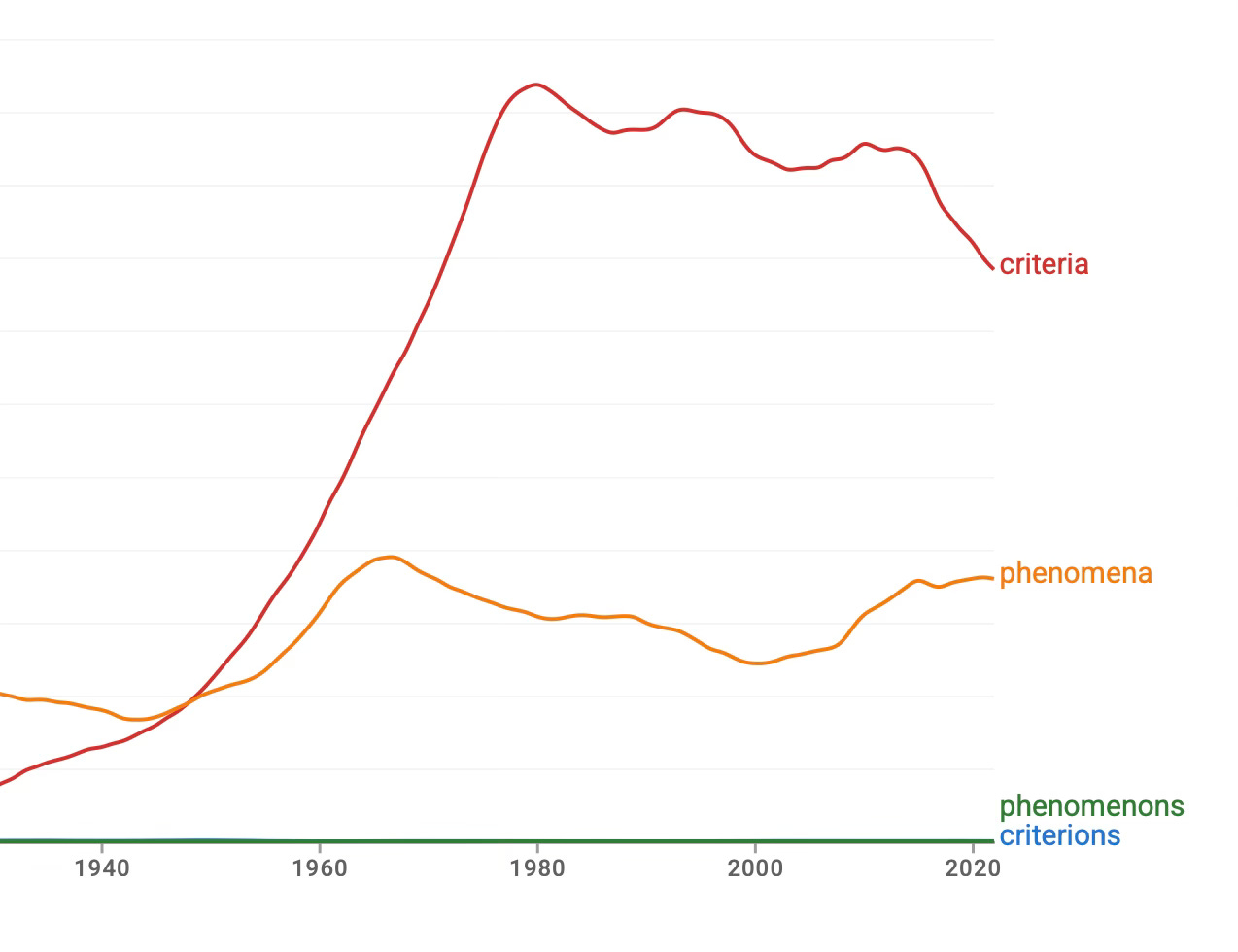
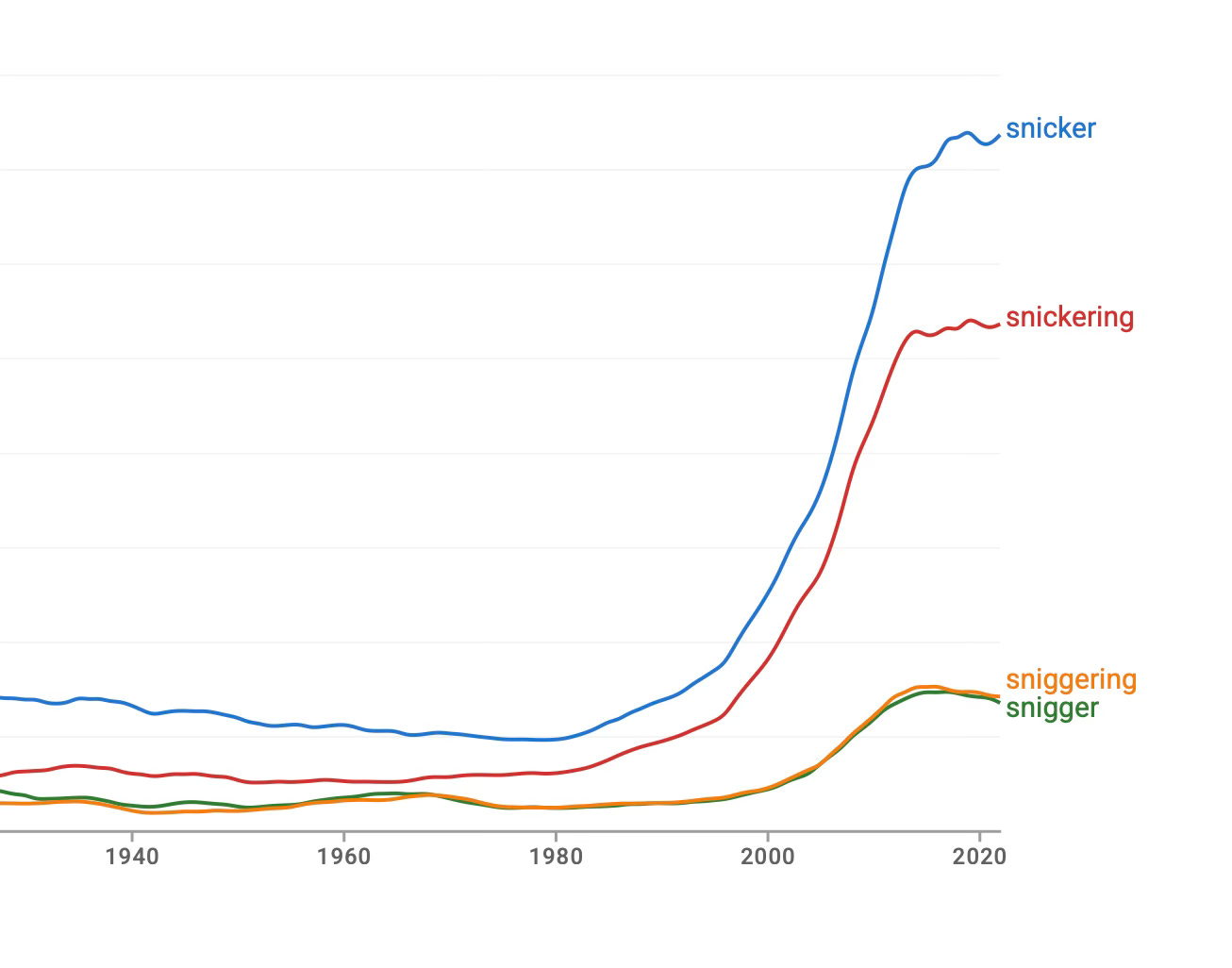
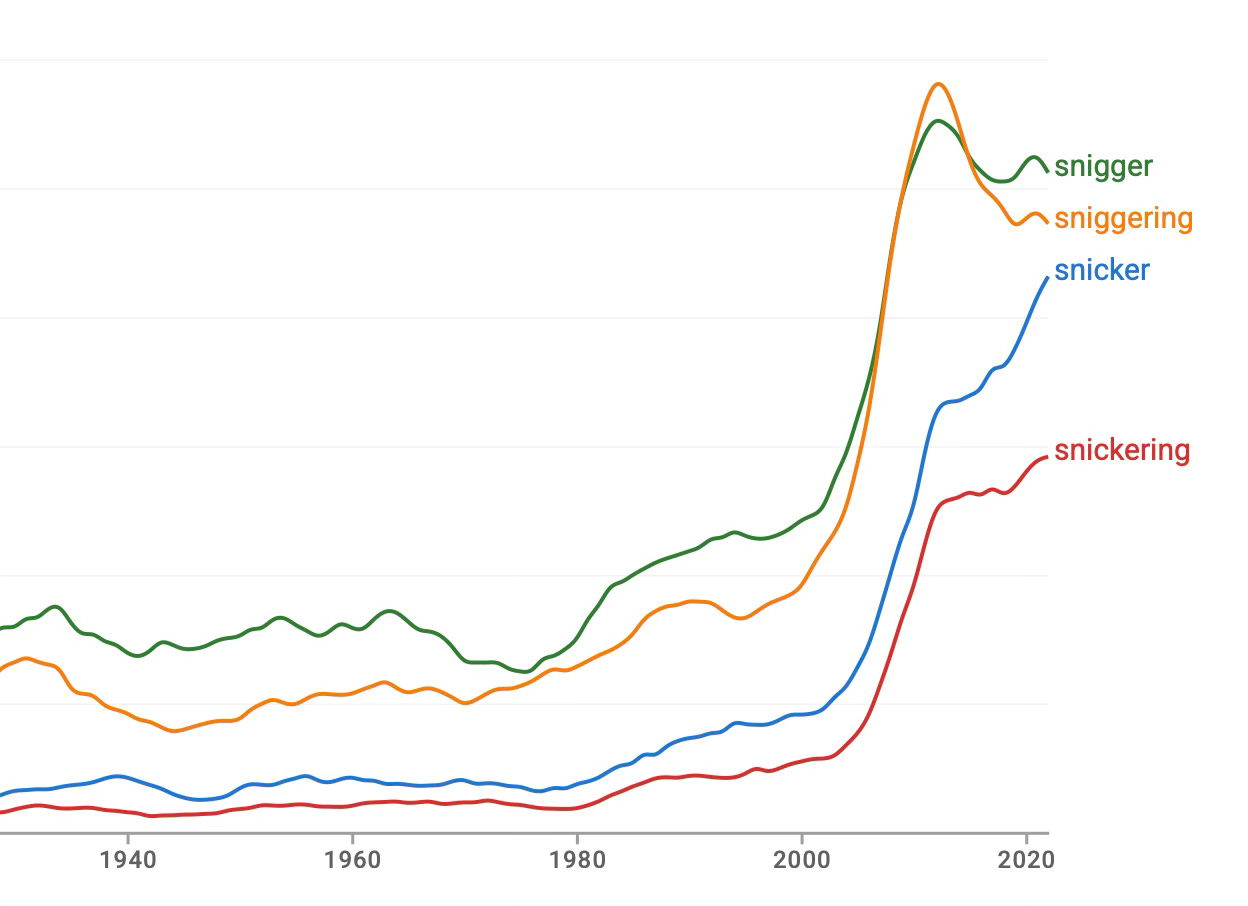
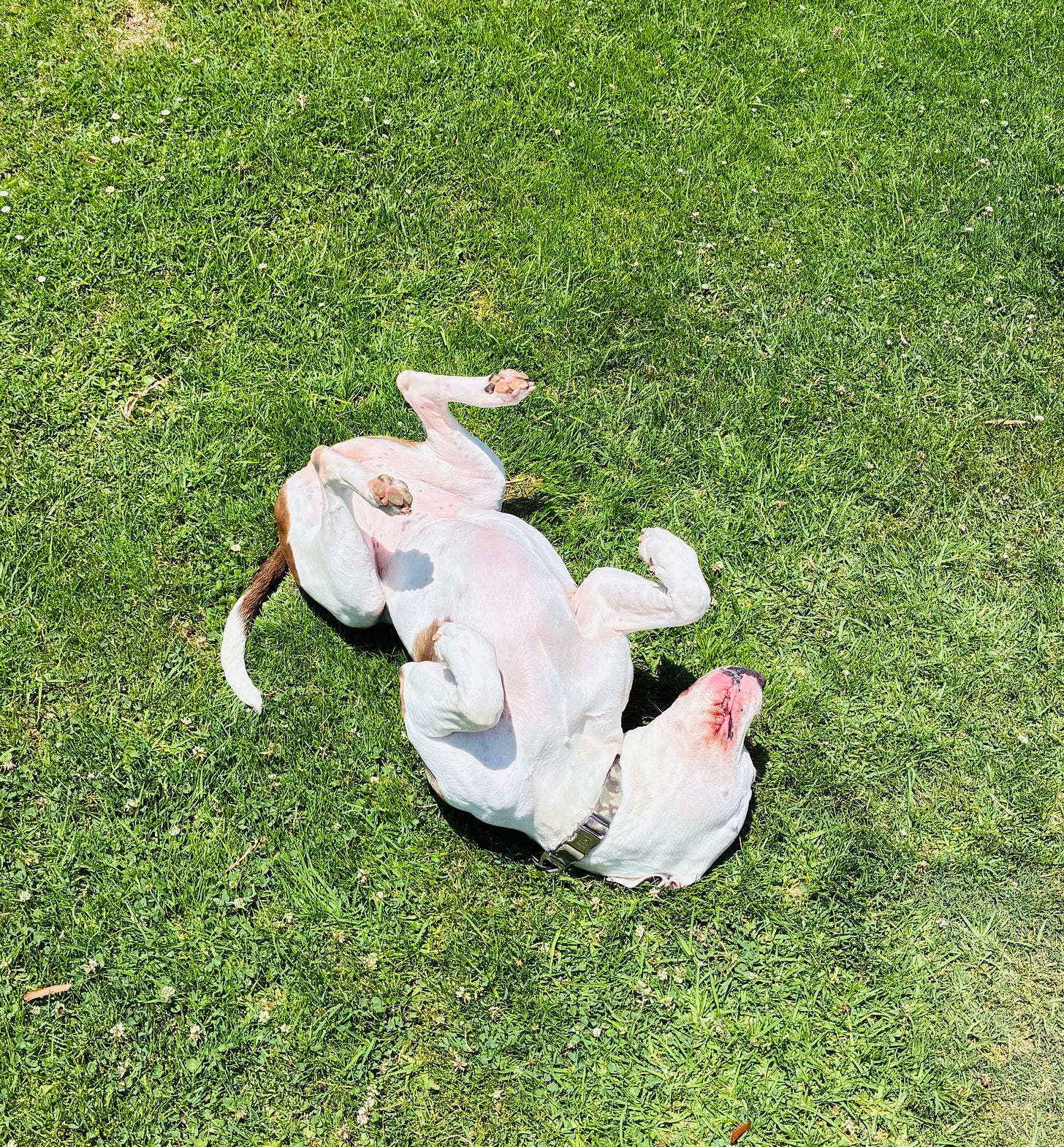
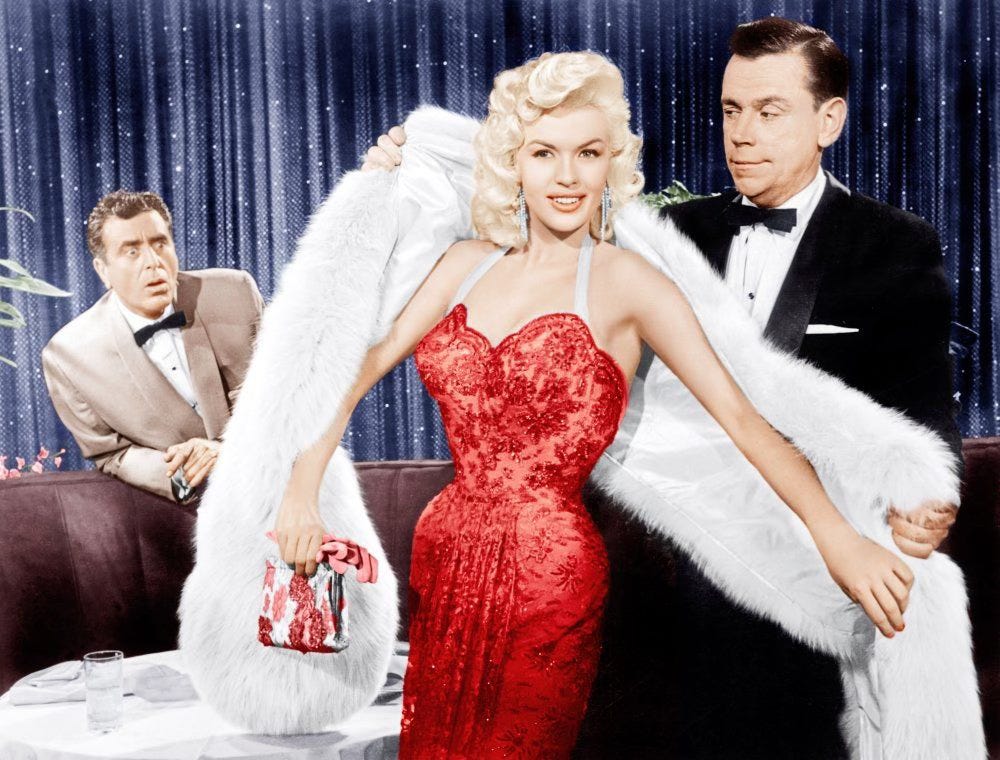
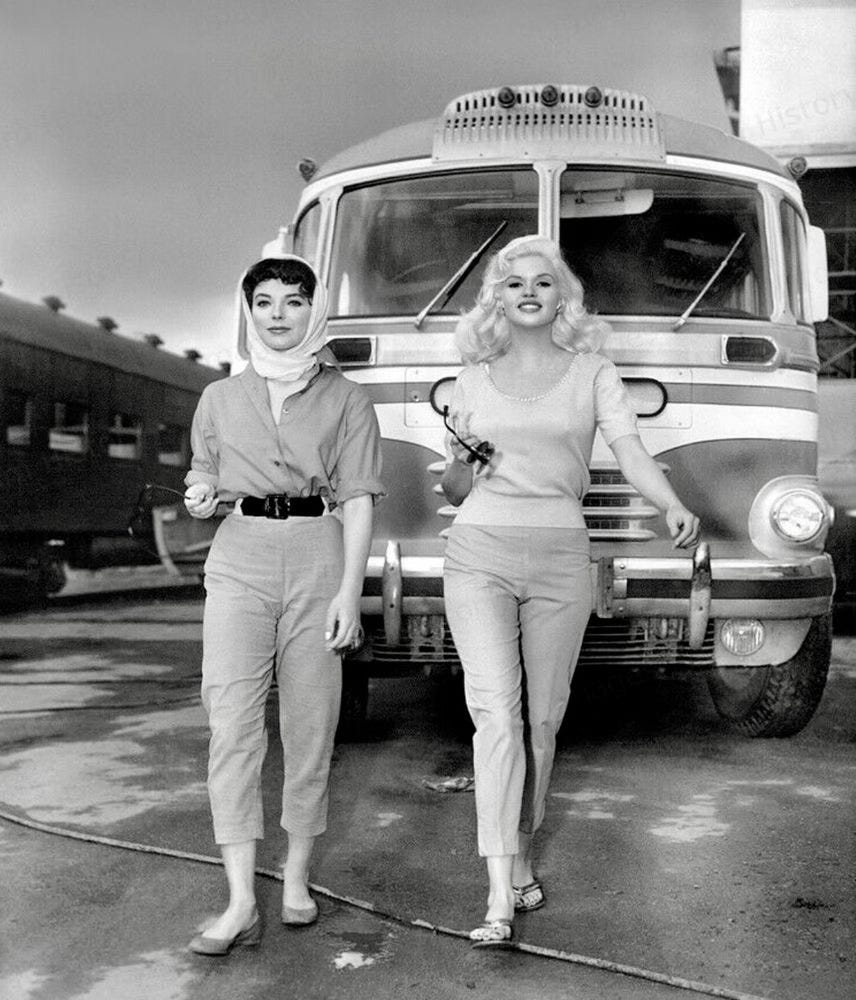
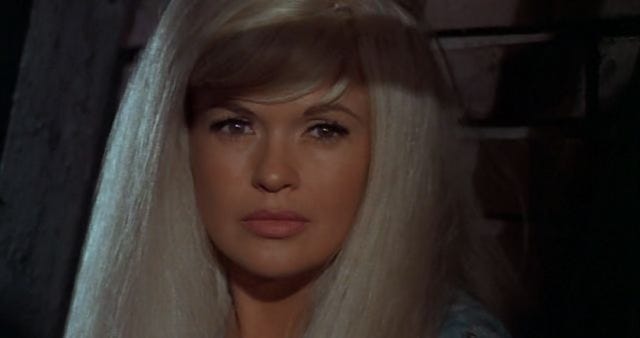
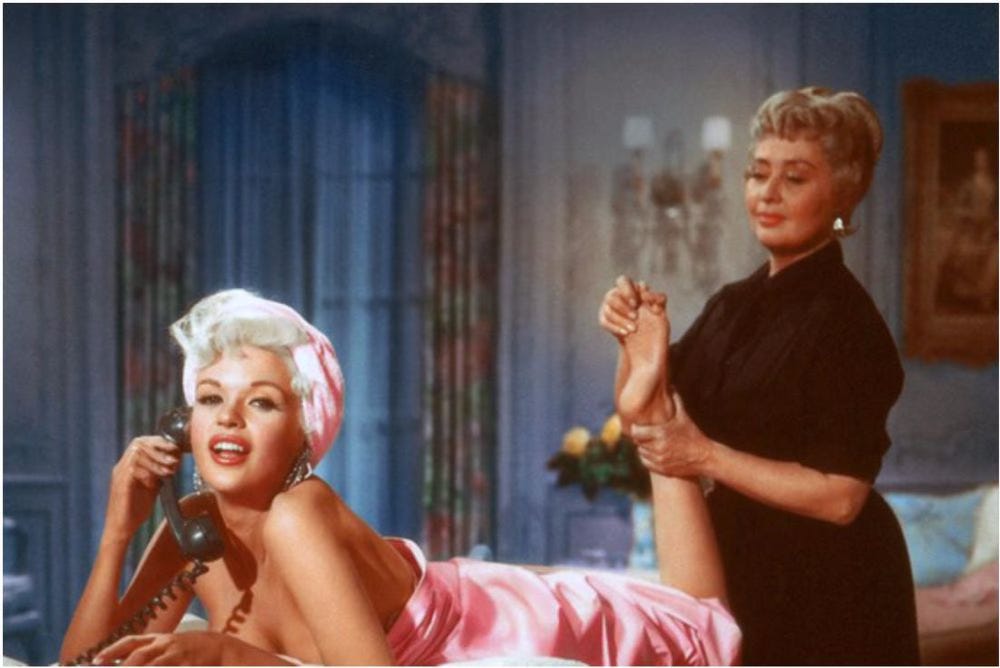
Details politely requested; abstruse, ancient mirth sounds deeply appealing to me.
"Riddley Walker": I will never cease to be amazed that Russell Hoban's authorial output includes both "Riddley Walker" and "Bread and Jam for Frances."
Grey is the sea on a dull, cool, delicious, but somehow ominous day. Gray is that action figure's arms, or the army-chic pants. Grey is always on the illustrator Elisha Cooper's paint palette. Gray is-- oh! My husband's backpack is gray. I'm so glad I've cleared that up for everyone, and may I introduce you to the hill on which I am prepared to die? Please, consider yourselves welcome.
I see the details about your allusion to abstruse, ancient mirth have been requested and supplied. Thanks so much.
I just googled "tussie-mussie" and am amazed at the variety of what showed up.
Regarding titter - I'm reminded of a joke I read in my youth (probably from Playboy which I read mostly for the jokes being too young to care about the articles 😂). It seems back in colonial times someone in one of the colonies had replicated the British court system just from reading accounts of it in the newspapers. Upon visiting, a Brit noticed they'd gotten all the details correct from the floor plan, to the robes, to the powdered wigs. However periodically a topless woman ran through the place waving scarves around. When asked about this, the colonial creator of the court said they read that occasionally a nervous titter would run through the gallery.